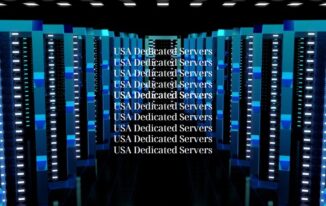As local business community continues to grow and thrive, so does an invisible threat that operates in the background. While you’re focused on serving customers and managing daily operations, cybercriminals are actively looking for vulnerabilities to exploit. This isn’t a problem reserved for global corporations in distant cities; it’s happening right here.

The reality is that small and medium-sized businesses (SMBs) are often the primary targets. As one report from StrongDM highlights, 46% of all cyber breaches impact businesses with fewer than 1,000 employees. An attack can bring your operations to a grinding halt, cause devastating financial loss, and permanently damage the trust you’ve built with your customers.
This growing vulnerability gap leaves many Springfield business owners feeling overwhelmed and unsure where to begin. As Forbes Technology Council advises, effective cybersecurity isn’t built on a single tool—it demands a proactive strategy that anticipates gaps, identifies weaknesses before attackers do, and evolves in step with emerging threats
This guide will cut through the technical jargon to offer a practical, actionable plan. It’s time to forge your own “unseen shield” and protect the business you’ve worked so hard to build.
Key Takeaways
- SMBs are Prime Targets: Small and medium-sized businesses in Springfield are increasingly in the crosshairs of cybercriminals due to their valuable data and often less-fortified security infrastructure.
- AI is a Double-Edged Sword: Artificial intelligence is dramatically escalating the sophistication of cyber threats like phishing while also providing powerful new tools for 24/7 defense and real-time threat detection.
- A Multi-Layered Defense is Essential: Effective cybersecurity isn’t about one tool. It requires a combination of strong technical foundations, a well-trained “human firewall,” proactive threat hunting, and a solid recovery plan.
- Local Expertise Matters: Partnering with a local provider offers personalized, rapid support and a deep understanding of the specific challenges and opportunities facing the Springfield business community.
The New Battlefield: Why Springfield SMBs are in the Crosshairs
Many business owners ask the same question: “Why would a hacker target us?” The answer is simple: you have exactly what they want, with fewer obstacles in the way. Cybercriminals view SMBs as the perfect balance of valuable assets and manageable risk.
Here’s why your business is an attractive target:
- Valuable Data: You hold a trove of sensitive information, from customer payment details and employee records to proprietary business plans.
- Fewer Resources: Compared to large enterprises, SMBs typically have smaller IT budgets and lack dedicated, in-house cybersecurity experts, making their defenses easier to breach.
- Supply Chain Access: Hackers often use smaller businesses as a gateway. By compromising your systems, they can launch attacks against your larger partners and clients who trust you.
That’s why managed IT services in Springfield have become a critical line of defense. By combining continuous monitoring, advanced security tools, and expert support, they help businesses stay resilient against evolving threats. For SMBs, this shift from reactive fixes to proactive protection isn’t just about IT—it’s about preserving trust, continuity, and long-term growth in an increasingly hostile digital landscape.
Top Threats to Watch For
The methods attackers use are constantly evolving. Today’s biggest threats are sophisticated and designed to exploit human psychology as much as technical flaws.
- Hyper-Realistic Phishing & Social Engineering: Forget emails with obvious typos. Modern phishing attacks are incredibly convincing, perfectly mimicking legitimate communications from banks, vendors, or even your own leadership team to steal credentials or money.
- Ransomware: This malicious software encrypts your critical business files, rendering them completely inaccessible. The attackers then demand a hefty ransom for the decryption key, causing crippling downtime that can last for days or weeks.
- Business Email Compromise (BEC): In a BEC attack, a criminal impersonates a high-level executive (like the CEO) and sends an urgent email to an employee in finance, tricking them into making a fraudulent wire transfer to an account the attacker controls.
The consequences of a breach are severe. On a global scale, cybercrime is set to cost businesses up to $10.5 trillion by 2025, a staggering figure that reflects the immense damage these attacks cause. For a local Springfield company, this translates into lost revenue from downtime, the cost of recovery, potential regulatory fines, and the long-term erosion of customer trust.
5 Essential Cybersecurity Measures for Every Springfield Business
Protecting your business doesn’t require you to become a cybersecurity expert overnight. It starts with implementing a core set of foundational controls. Think of these five measures as the non-negotiable pillars of your company’s defense.
1. Strengthen Your Technical Foundations
Your technology is the first line of defense. Start by hardening your core infrastructure.
- Multi-Factor Authentication (MFA): This is arguably the single most effective security measure you can implement. MFA requires a second form of verification (like a code from a phone app) in addition to a password, making stolen credentials nearly useless to an attacker.
- Next-Generation Firewalls & Endpoint Protection: A modern firewall acts as a gatekeeper for your network, blocking malicious traffic. Endpoint protection secures individual devices like laptops and servers from malware and other intrusions.
- Consistent Patch Management: Software developers regularly release updates, or “patches,” to fix security holes. Applying these updates promptly across all your systems and applications is critical to closing known vulnerabilities before they can be exploited.
2. Build Your Human Firewall
The most advanced technology in the world can be bypassed by a single click from an unsuspecting employee. Your team must be your first and best line of defense.
- Regular, Engaging Training: Conduct ongoing training that teaches employees how to recognize phishing attempts, use strong and unique passwords, and handle sensitive data safely.
- Create a Security-First Culture: Foster an environment where employees feel comfortable reporting suspicious emails or activities immediately, without fear of blame. This vigilance can stop an attack in its tracks.
3. Embrace Proactive Defense
Traditional cybersecurity was often reactive—waiting for a problem to happen and then fixing it. Modern defense is about anticipating threats and finding weaknesses before criminals do.
- Ethical Hacking: An observed trend shows that as many as 60% of Springfield companies now incorporate ethical hacking in their security protocols. This involves hiring professionals to safely test your defenses to identify and fix gaps.
- Threat Intelligence: Staying informed about the latest cyber threats and attack techniques helps you adjust your defenses accordingly, ensuring you are prepared for what’s coming next.
4. Plan for the Worst: Data Backups & Incident Response
Even with the best defenses, you must prepare for a worst-case scenario.
- Secure, Tested Backups: Maintaining regular, isolated, and tested backups of your critical data is your ultimate safety net against ransomware. If your data is encrypted, you can restore it from a clean backup instead of paying a ransom.
- Incident Response Plan: Have a clear, written plan that details exactly what to do in the event of a breach. It should outline who to call, what steps to take to contain the damage, and how to communicate with employees and customers.
5. Understand Your Local Obligations
As a business owner, you have legal and regulatory responsibilities related to data protection.
- Missouri Regulations: Be aware of Missouri’s data breach notification laws, which dictate how and when you must inform affected individuals if their personal information is compromised.
- Industry-Specific Compliance: If you operate in a regulated industry like healthcare (HIPAA) or finance (PCI DSS), you must adhere to specific, stringent cybersecurity standards to protect sensitive data.
The Local Advantage: You Don’t Have to Fight Alone
For many Springfield SMBs, building and maintaining an expert in-house IT security team is simply not feasible due to a widespread cybersecurity talent shortage. This is where a strategic partnership becomes your greatest advantage.
Working with a local managed IT partner gives you access to a dedicated team of experts who understand the nuances of the Springfield business community. Unlike a faceless national provider, a local team offers:
- Personalized, Community-Tailored Service: They get to know your business, your goals, and your specific risks.
- Rapid, Accessible Support: When an issue arises, help is just a phone call or a short drive away, not in a different time zone.
- Expert Oversight: A local partner provides continuous 24/7 network monitoring, proactive system optimization, and robust data security, freeing you from the technical burden so you can focus on growth.
Conclusion
Protecting your Springfield business from modern cyber threats is not a one-time project; it’s an ongoing commitment. It requires a multi-layered strategy that combines strong technology, an educated team, and a proactive mindset. This “unseen shield” is what works behind the scenes, safeguarding your valuable assets and ensuring your operations run smoothly and securely. You don’t have to let the complexities of cybersecurity distract you from what you do best.



